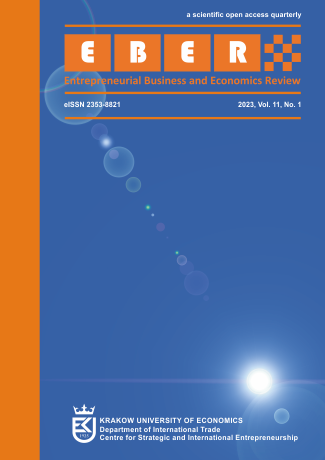Eco-innovation in the European Union:
Challenges for catching-up economies
Eco-innovation in the European Union:
Challenges for catching-up economies
Author(s): Agnieszka Hajdukiewicz, Bożena PeraSubject(s): Business Economy / Management, Energy and Environmental Studies
Published by: Uniwersytet Ekonomiczny w Krakowie
Keywords: eco-innovation; Eco-Innovation Index; the European Union; catching-up eco-innovators; eco-innovation inputs; eco-innovation activities; environmental protection;
Summary/Abstract: Objective: The objective of the article is to examine the eco-innovation performance of the EU countries measured by the Eco-Innovation Index and identify the key areas for improvement for the EU members with relatively low scores.Research Design & Methods: The research methods include the literature study, the analysis of documents, and the comparative analysis of statistical data collected from the eco-innovation scoreboard database with the use of descriptive statistics, correlation index, and cluster analysis. The comparative analysis covered selected eco-innovation indicators and sub-indicators for nine catching-up economies compared to the leading countries and the EU average.Findings: The results show that despite the fact that almost all economies from the group of catching-up eco-innovators made progress in terms of their overall eco-innovation performance, albeit they were una- ble to significantly reduce the innovation gap between them, and the leading countries and their classifica- tion based on relative results remained unchanged in the recent decade. This suggests that more effort, focused especially on specific thematic areas, is needed for these countries to make bigger progress and to move up to the average eco-innovation performers and even to the leading eco-innovators. The strongest correlation between the value of the Eco-Innovation Index and the value of a given subindex suggests that the main areas for improvement are: total R&D personnel and researchers, eco-innovation-related patents, energy productivity and implementation of sustainable products among SMEs, but all of the areas covered by subsequent subindexes need attention.Implications & Recommendations: Taking into consideration the fact that eco-innovations are important tools for achieving sustainable development goals, the results of the study may provide important guidance for policy-makers in the area of innovation policy and sustainable development, especially in economies clas- sified as ‘catching up with eco-innovation.’Contribution & Value Added: By focusing on the eco-innovation gap between the countries leading in this respect and those catching up, we have identified the key areas that require significant improvement, looking from the perspective of countries currently achieving relatively weak results in individual dimensions of eco- innovation and striving to improve their innovation performance.
Journal: Entrepreneurial Business and Economics Review
- Issue Year: 11/2023
- Issue No: 1
- Page Range: 145-164
- Page Count: 20
- Language: English

